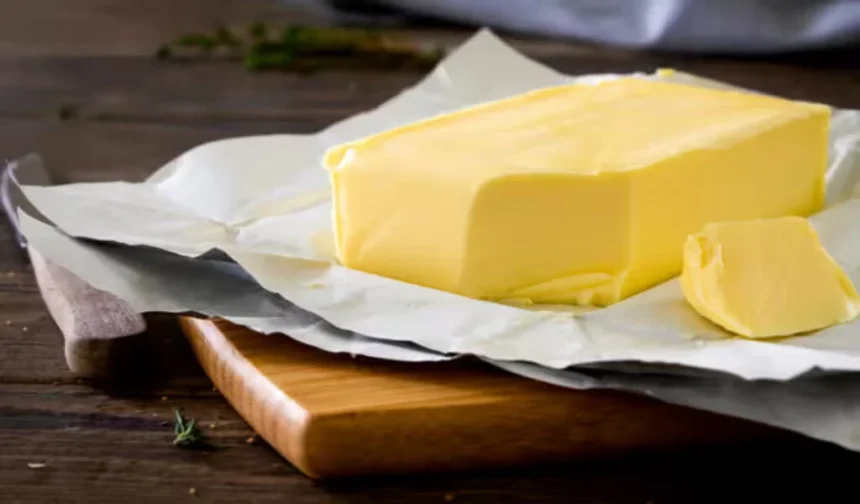(CTN News) – Following the revelation that Cabot Creamery’s butter had bacteria often seen in feces, the business decided to recall the product in seven states across the United States.
This decision was made in reaction to the detection of germs in butter.
The Food and Drug Administration (FDA) of the United States has decided to recall more than 1,700 pounds of butter because the product was “contaminated with elevated levels of coliform,” a type of bacterium common in animal digestive systems and manure.
The FDA issued this conclusion after the product was discovered to be contaminated with coliform.
According to a report issued by the enforcement agency on March 26, the voluntarily recalled product is Cabot’s Extra Creamy Premium Sea Salted Butter, which comes in an eight-ounce size.
According to the article, the product is being recalled due to an abundance of caution. This butter was delivered in seven states: New York, Pennsylvania, Vermont, Maine, Connecticut, New Hampshire, and Arkansas.
New Hampshire was also part of this group. In addition, New Hampshire and Connecticut were among the states that received this. The recalled butter was issued the product code UPC 0 78354 62038 and brought to the attention of Connecticut authorities.
According to the recall notice, Cabot butter can be purchased in cardboard-wrapped canisters that hold two four-ounce sticks each.
These containers don’t include any extra butter.
The United States of America is the market for these containers. The best-by date for the batch that may contain contamination has been set to September 9, 2025, till the end of the year. This date excludes any additional dates.
Agri-Mark, the parent company of Cabot Creamery, issued a statement saying that the company “successfully recovered 99.5% of the lot of the recalled product before it was sold to consumers.”
Cabot Creamery is a subsidiary of Agri-Mark. It is general knowledge that the Cabot Creamery is a well-known ice cream producer. Customers in Vermont purchased a little quantity, consisting of seventeen retail packets weighing 8.5 pounds. Customers bought this quantity of the goods.
Furthermore, Agri-Mark released a statement stating that the company has “identified the cause and [has] taken the appropriate internal actions to address it.” According to the company’s certification, there were “no other products affected,” as stated.
According to the Food and Drug Administration (FDA), the recall has been classified as class 3, which has the least serious consequences. The FDA took this determination after conducting an investigation into the case. Based on this classification, we may conclude that the product in question is “not likely to cause adverse health consequences.”
Despite this, the government continues to advise consumers to either return recalled products to the merchant from whom they purchased them or dispose of them as soon as possible.
Both options are equally essential.
The coliform family is one of the most common types of bacteria found in dirt, plants, and the intestinal tracts of people and animals. It is also one of the most common types of bacteria. This bacterial family may be discovered in any of these areas.
According to claims made by the Vermont Department of Health, it has been confirmed on several times to be present in the state’s private water systems. One approach for determining whether or not the water is safe for consumption is to analyze the amount of coliform bacteria present in it.
The New York Department of Health claims that, while the vast majority of coliform bacteria do not cause illness, there are some exceedingly uncommon strains of E coli, a kind of fecal coliform bacteria, that can cause serious illness.
These strains are incredibly rare. It is conceivable for these strains to cause significant illness in humans. Testing for coliform bacteria is widely accepted as a reliable indicator of the presence of other dangerous bacteria. This is a generally accepted belief. In general, people agree that this is the case.
SOURCE: TG
SEE ALSO:
Prada and Versace Agree to Buy Each Other in a $1.4 Billion deal.
The Inflation Rate Fell to 2.4% in March, Lower Than Forecast.

Salman Ahmad is known for his significant contributions to esteemed publications like the Times of India and the Express Tribune. Salman has carved a niche as a freelance journalist, combining thorough research with engaging reporting.














